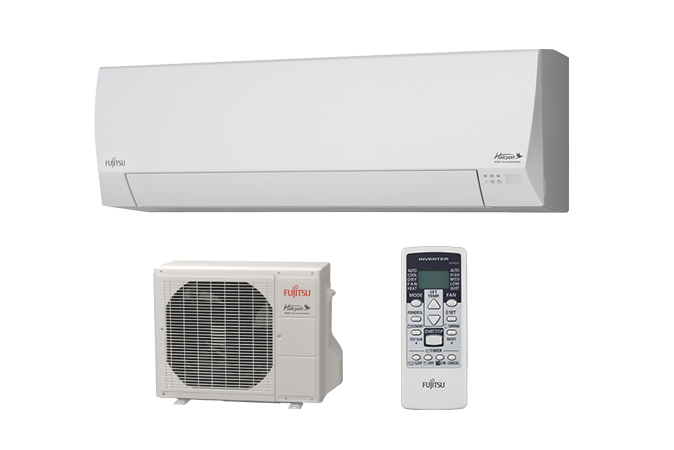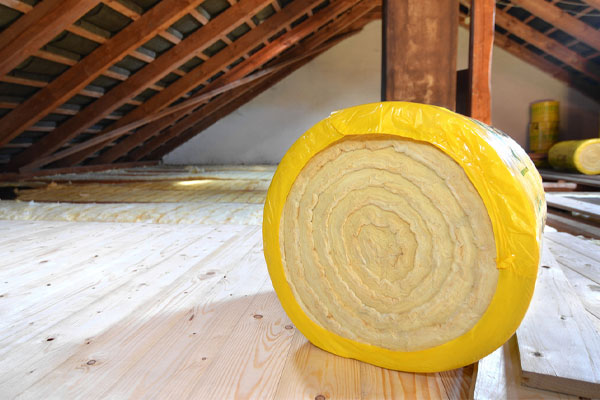Discover the Perfect Attic Air Conditioner: Key Features to Seek Out

Transforming your attic into a functional space presents a unique set of considerations, paramount among them being how to regulate its temperature effectively. Understandably, the goal is to achieve maximum comfort without high energy costs. Choosing the ideal attic air conditioner involves evaluating various attributes and prerequisites.
Factors such as the unit’s capacity, its energy efficiency, the intricacies of installation, and how well it integrates with your current heating, ventilation, and air conditioning (HVAC) setup are crucial for an informed decision. This article aims to illuminate the critical elements you should consider in your quest for the perfect attic air conditioner, guiding you through the vital features that merit your focus.
Selecting an Air Conditioner for Your Attic: Key Considerations
Contents
The attic, with its distinctive characteristics, demands a specialized approach to cooling. Opt for an air conditioning system tailored for attic spaces. Moreover, familiarize yourself with the local building codes and safety regulations concerning installing attic air conditioners to guarantee compliance and maintain safety standards. Consult a seasoned HVAC professional to ensure the most effective cooling solution for your attic space.
AC Size & Capacity

Partner with an expert HVAC contractor to accurately determine the cooling capacity your attic requires. The attic’s size, insulation quality, and heat load are vital considerations. Choosing an air conditioner that aligns with these factors ensures efficient cooling without overburdening the system or falling short of expectations.
Energy Efficiency & Air Conditioner SEER Rating

Selecting an energy-efficient air conditioner is crucial for lowering your electricity costs and environmental footprint. Aim for units boasting a high Seasonal Energy Efficiency Ratio (SEER), where a higher rating signifies superior energy efficiency.
Compact Air Conditioner
Given the typically restricted space in attics, opt for an air conditioning unit with a sleek, compact design. This ensures a snug fit within the available area, simplifying installation and ongoing maintenance tasks.
Ductless or Mini-Split System

A ductless or mini-split air conditioning system is an excellent alternative to traditional central units for attics without existing ductwork. These systems feature an external unit linked to one or several internal units, making them adaptable and straightforward to install without significant structural changes. They are known for their high SEER ratings, affordability in operation, and the exceptional comfort they provide.
Managing Condensation
High humidity in attics can lead to condensation issues. Opt for cooling systems with condensation management features like condensate pumps or drainage systems to prevent moisture problems. Discuss these options with your local HVAC expert to ensure your attic stays dry and comfortable.
Noise Levels in Attic Air Conditioning
When choosing an air conditioner for your attic, especially if it’s near living areas, the unit’s noise level is a critical factor. Select models equipped with noise-dampening technologies, like insulated compressor compartments or variable speed fans, to ensure the system operates quietly and doesn’t disturb the peace of your home.
Don’t let attic temperature fluctuations disrupt your home’s comfort – choose Miller Oil Company for dependable HVAC services that ensure your attic remains cool and comfortable year-round!
The Importance of Installing an Attic Air Conditioner

Equipping your attic with an air conditioning unit is essential for maintaining comfort and regulating temperatures throughout your home. Attics are prone to trapping heat, leading to discomfort in the space itself and contributing to higher temperatures in adjacent living areas.
An attic air conditioner allows you to:
- Transform your attic into a practical storage area
- Convert your attic into additional living space
- Reduce the strain on your home’s primary cooling system
Exploring Air Conditioner Options for Your Attic
Selecting the right air conditioning unit for your attic depends on your space’s unique needs and limitations. Below are four types of air conditioners that are well-suited for attic installations:
Ducted Split System
This features a central air conditioning unit, usually placed outdoors or in a mechanical room, which connects to ductwork running throughout your home and into the attic.
This setup allows cooled air to be efficiently distributed through vents into various rooms, making it suitable for spacious attics or multi-area cooling. It’s essential to have adequate space for ductwork and effective insulation to minimize energy loss.
Ductless Mini-Split Systems

Ductless mini-split systems are favored for attic cooling, particularly where installing ductwork is impractical or unwanted. This type of air conditioning comprises an external condenser and one or more indoor air handling units within the attic.
These two components are connected via refrigerant lines that pass through a minimal opening in the attic wall, ensuring a streamlined installation process. Ductless mini-splits are celebrated for their zoning capabilities, allowing for the independent cooling of specific attic areas. They stand out for their energy efficiency, straightforward installation, and quiet operation.
Portable Air Conditioning Units
Portable ACs are mobile and have an exhaust hose for external venting through a window or attic opening. They’re easy to install, making them suitable for small or temporary attic cooling needs.
However, their lower energy efficiency, cooling capacity, and the need for proper venting make them a less favorable choice compared to more permanent air conditioning solutions.
Elevate your attic’s comfort and efficiency with Miller Oil Company’s expert HVAC solutions – call us today to schedule your consultation!
Through-the-Wall Air Conditioning Units
These AC units are mounted directly into an exterior wall and require a vent opening. Suitable for small attic spaces, they offer a space-saving design. However, they can be noisier, more expensive to run, and may promote mold growth, impacting air quality.
Due to these disadvantages, they’re considered outdated, with HVAC experts often recommending modern, efficient options like ductless mini-split systems for attic cooling.
Significance of Proper Insulation & Sealing

Effective insulation and sealing are crucial for the optimal performance of an attic air conditioning system. By adequately insulating the attic, you establish a thermal barrier that impedes heat transfer between the attic space and the rest of your home. This ensures that the cool air generated by the air conditioner is retained within the living spaces, thereby reducing the operational demands on the AC unit and leading to significant energy savings.
Sealing prevents air leaks through gaps, cracks, or inadequately sealed areas. These leaks let conditioned air escape and unconditioned air enter. Properly sealing these openings ensures a tighter attic space, enabling the air conditioner to work more efficiently and promote uniform cooling. Effective sealing enhances AC performance and ensures consistent temperature distribution within the attic.
Effective insulation and sealing are vital in preventing moisture-related problems, such as condensation, which can lead to mold growth, structural damage, and reduced insulation effectiveness. Ensuring your attic is dry and well-sealed contributes to a healthier living environment and lowers the likelihood of expensive repairs. Investing in proper insulation and sealing enhances your attic air conditioning system’s efficiency, performance, and durability, fostering a more comfortable and sustainable home.
Improve your home’s comfort with Miller Oil Company’s exceptional HVAC services – contact us now for expert assistance and reliable solutions tailored to your needs!
Conclusion
Considering the key factors we’ve discussed for attic air conditioning, it is essential for smooth installation and optimal performance. These factors include temperature control, energy efficiency, protecting items, moisture management, and proper insulation and sealing.
Consulting with a reputable HVAC contractor is critical; their expertise will help select, size, and install the right AC unit and optimize its operation for your attic. Their guidance ensures informed decisions for a dependable and efficient cooling solution, improving your attic’s comfort and usability.
Contact Miller Oil Company for Your HVAC Needs
Miller Oil Company is a premier provider of HVAC services in the Greater Enfield, Connecticut area, boasting a team of highly skilled and professionally certified technicians. We specialize in HVAC tune-ups, repairs, installations, and replacements and are committed to delivering superior service.
Understanding the need for a comfortable, energy-efficient home, Miller Oil Company offers affordable pricing on all services. Whether you need HVAC repair or replacement, our expert technicians can suggest the best solutions within your budget. A satisfaction guarantee backs our commitment to quality.
For a service appointment, call us today. We provide free, in-home estimates to assist you in making knowledgeable decisions about your HVAC systems. Trust Miller Oil Company for outstanding heating and cooling services that meet and surpass your expectations!
To schedule a service appointment, contact Miller Oil Company today. We also offer free, in-home estimates. Click the link to view our service area.

Related Articles: